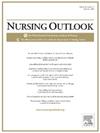University of Massachusetts Amherst's nursing PhD program Equity-centered community design of a new curriculum to transform the discipline, achieve health justice, and sustain planetary health
IF 3.7
2区 医学
Q1 NURSING
引用次数: 0
Abstract
Background
What constitutes innovative high-quality curricula for research-focused doctoral study in nursing must evolve with the ever-changing landscape of health care, science, and societal challenges.
Purpose
Guided by health justice, commitments to accessible and anti-racist praxis, and creation of more sustainable and inclusive futures, we sought to re-imagine and co-create a transformative nursing doctorate in philosophy (PhD) curriculum.
Methods
Equity-centered community design (ECCD) guided our process.
Discussion
Our redesigned nursing PhD curriculum consists of three interconnected tracks: philosophy and theory to inform visionary anti-racist/anti-colonial leadership; accountable research design; and methods for critical reasoning and analysis of power and how it operates to shape nursing’s epistemics, research, and innovation.
Conclusion
Leadership for nursing PhD curriculum design remains an elite space dominated by a relatively homogenous group of nursing scholars. Our approach challenged that norm in order to redistribute power over design decisions for a nursing PhD program designed to create new futures for nursing and health justice.
马萨诸塞大学阿姆赫斯特分校的护理博士课程以公平为中心的社区设计了一个新的课程,以改变学科,实现健康正义,并维持地球健康
什么构成了创新的高质量课程为研究为重点的博士研究护理必须发展与不断变化的卫生保健,科学和社会挑战的景观。目的:在卫生正义、对无障碍和反种族主义实践的承诺以及创造更可持续和包容的未来的指导下,我们试图重新构想并共同创建一个变革性的护理哲学博士课程。方法以安全性为中心的社区设计(ECCD)指导我们的过程。我们重新设计的护理博士课程包括三个相互关联的轨道:哲学和理论,为有远见的反种族主义/反殖民领导提供信息;负责任的研究设计;以及对权力进行批判性推理和分析的方法,以及它如何影响护理的认识论、研究和创新。结论护理博士课程设计的领导仍然是一个由相对同质的护理学者群体主导的精英空间。我们的方法挑战了这一规范,以便重新分配设计决策的权力,护理博士课程旨在为护理和健康正义创造新的未来。
本文章由计算机程序翻译,如有差异,请以英文原文为准。
求助全文
约1分钟内获得全文
求助全文
来源期刊

Nursing Outlook
医学-护理
CiteScore
6.20
自引率
7.00%
发文量
109
审稿时长
25 days
期刊介绍:
Nursing Outlook, a bimonthly journal, provides innovative ideas for nursing leaders through peer-reviewed articles and timely reports. Each issue examines current issues and trends in nursing practice, education, and research, offering progressive solutions to the challenges facing the profession. Nursing Outlook is the official journal of the American Academy of Nursing and the Council for the Advancement of Nursing Science and supports their mission to serve the public and the nursing profession by advancing health policy and practice through the generation, synthesis, and dissemination of nursing knowledge. The journal is included in MEDLINE, CINAHL and the Journal Citation Reports published by Clarivate Analytics.
 求助内容:
求助内容: 应助结果提醒方式:
应助结果提醒方式:


